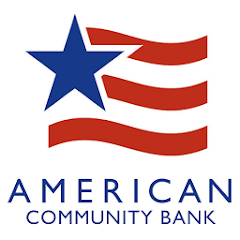Security Center |
Identity ProtectionHow to Safeguard Your Identity: Identity theft is one of the fastest growing white-collar crimes. It occurs when an identity thief gains access to and uses an individual's personal identifying information without his or her knowledge in order to commit fraud or theft. To protect your privacy and minimize your risk of becoming a victim of identity theft you can take the following steps: |
Personal Identifying InformationProtect personal identifying information, such as your date of birth, Social Security number, credit card numbers, bank account numbers, Personal Identification Numbers (PINs) and passwords. Do not give any of your personal identifying information over the telephone, through the mail or online unless you have initiated the contact or know and trust the person or company to whom it is given. |
Credit, Debit and ATM CardsCarry in your wallet or purse only the credit cards, debit cards or personal information that you actually need. Keep a list of all your cards and bank accounts along with the account numbers, expiration dates, credit limits, and the telephone numbers of all customer service or fraud departments of the providers. Store the list in a safe place.
|
Credit ReportsOn a yearly basis, order a copy of your credit report and review it for accuracy. Review your credit report for unauthorized purchases, bank accounts and credit cards. Examine your credit report for anything suspicious in the section that lists who has received a copy of your credit history. |
Bank Account and Credit Card StatementsKnow your billing cycles and watch for any missing mail. Follow-up, immediately, with your financial institution if a bank account or credit card statement does not arrive on time. Review your bank and credit card statements promptly and immediately report any discrepancy or unauthorized transactions. When you order new checks, ask when you can expect delivery. If your mailbox is not secure, ask to have the checks mailed to the bank and pick them up here rather than having them delivered to your home or business. |
Telephone and Internet SolicitationsBe suspicious when receiving any offer made by telephone, on a website or in an email that sounds too good to be true. Always make sure that the person or business making the offer is legitimate before responding to a telephone or Internet offer. An unsolicited email that promises some benefit but requests personal identifying information should NOT be responded to. If at any time you receive an email requesting personal identity information that appears to be from American Community Bank, do not respond to the email and contact us immediately at 516.609.2900. American Community Bank never requests a customer's bank card number, account number, Social Security number, Personal Identification Number (PIN) or password through email. |
Home SecurityStore extra checks, credit cards, documents that list your Social Security number, and similar items in a safe place. Shred all credit card receipts and solicitations, ATM receipts, bank account and credit card statements, canceled checks, and other financial documents before you throw them away. |
PINs and PasswordsStore passwords in a safe place if you can't memorize them and never take them with you. Frequently change your passwords. Use a combination of numbers and letters for passwords, and never use easy-to-guess passwords or any series of consecutive numbers. Avoid selecting PINs and passwords that will be easy for an identity thief to figure out. (i.e. Never use any part of your Social Security Number, birth date, middle name, spouse's name, child's name, pet's name, mother's maiden name, your address, consecutive numbers, or anything a thief could easily deduce or discover.) |
|
Promptly remove mail from your mailbox. Upon receipt, carefully review your monthly accounts, credit card statements and utility bills (including cellular telephone bills) for unauthorized charges. If you spot any suspect activity, contact the provider immediately. |
For more information please visit the following pages:
|
